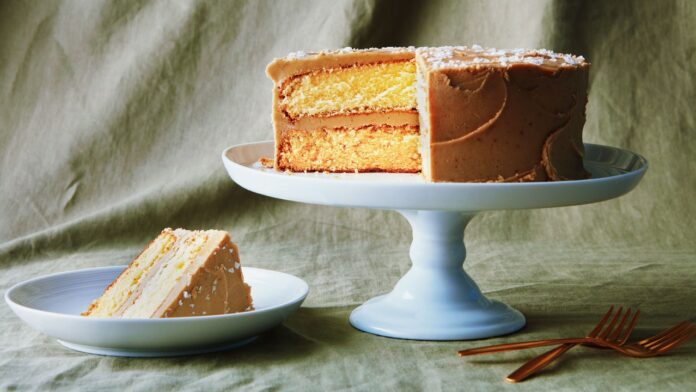Caramel cake is hyper-regional, an icon of the American South thought to have originated in the Mississippi Delta region. For the uninitiated, picture a cloud-soft yellow cake encased in a golden frosting with the taste and texture of fudge, the kind you might buy on holiday in a seaside town. It’s the frosting that gives caramel cake its character—and its reputation for being tricky to make. The best caramel frostings are cooked; buttercreams made with caramel sauce simply don’t make the cut. Traditionally made by cooking down milk and sugar until they caramelize, modern frosting versions (like the one used in this caramel cake recipe) take advantage of the ease and dark-molasses depth of brown sugar. While unusual, browning a portion of the butter intensifies the caramel flavor of the frosting, introducing a welcome element of smokiness. Adding room-temperature butter toward the end of the mixing process, a technique from America’s Test Kitchen, keeps the frosting soft and spreadable for a precious few extra minutes, just long enough to spread over the buttery, vanilla-scented cake. The frosting is undeniably sweet. The addition of vinegar and a generous amount of salt are meant to mitigate, but not mask, the hallmark sweetness. Without that faint fudge-like grit, Southern caramel cake wouldn’t be the same. Using bleached cake flour instead of all-purpose flour ensures cake layers with the tenderest crumb.



